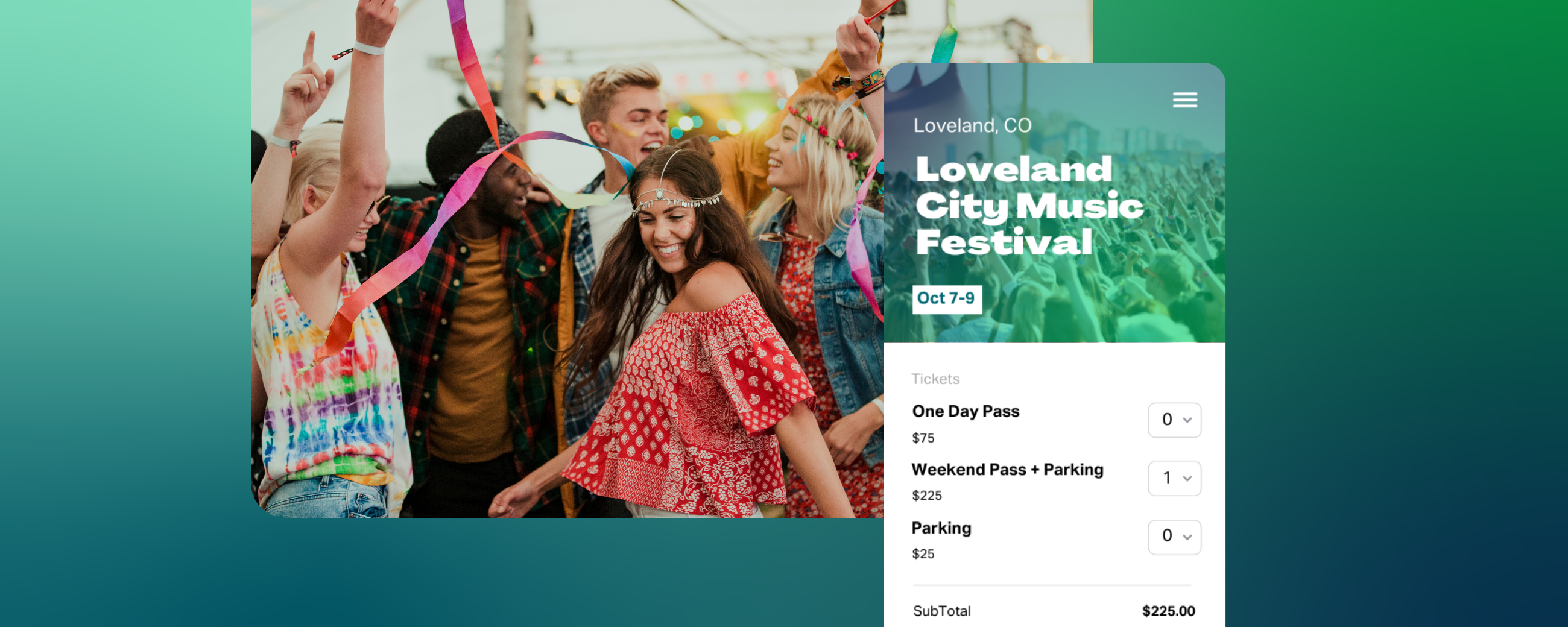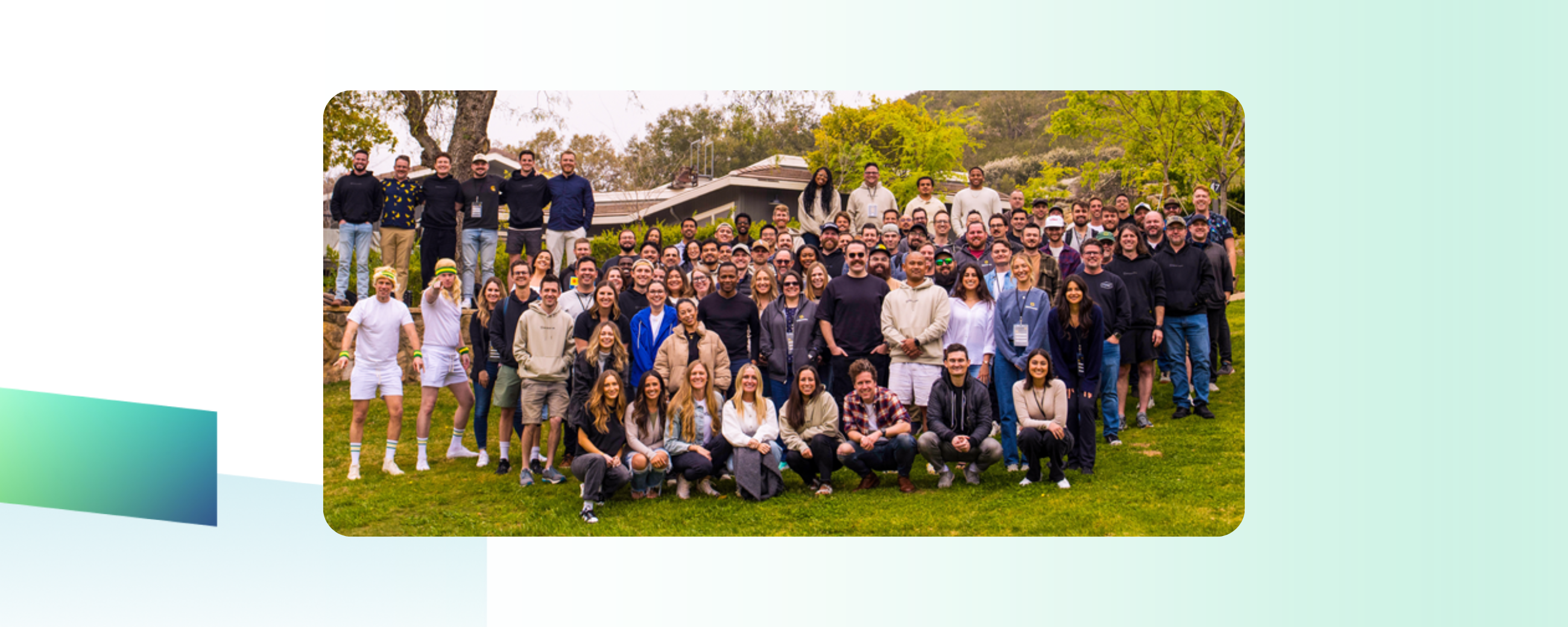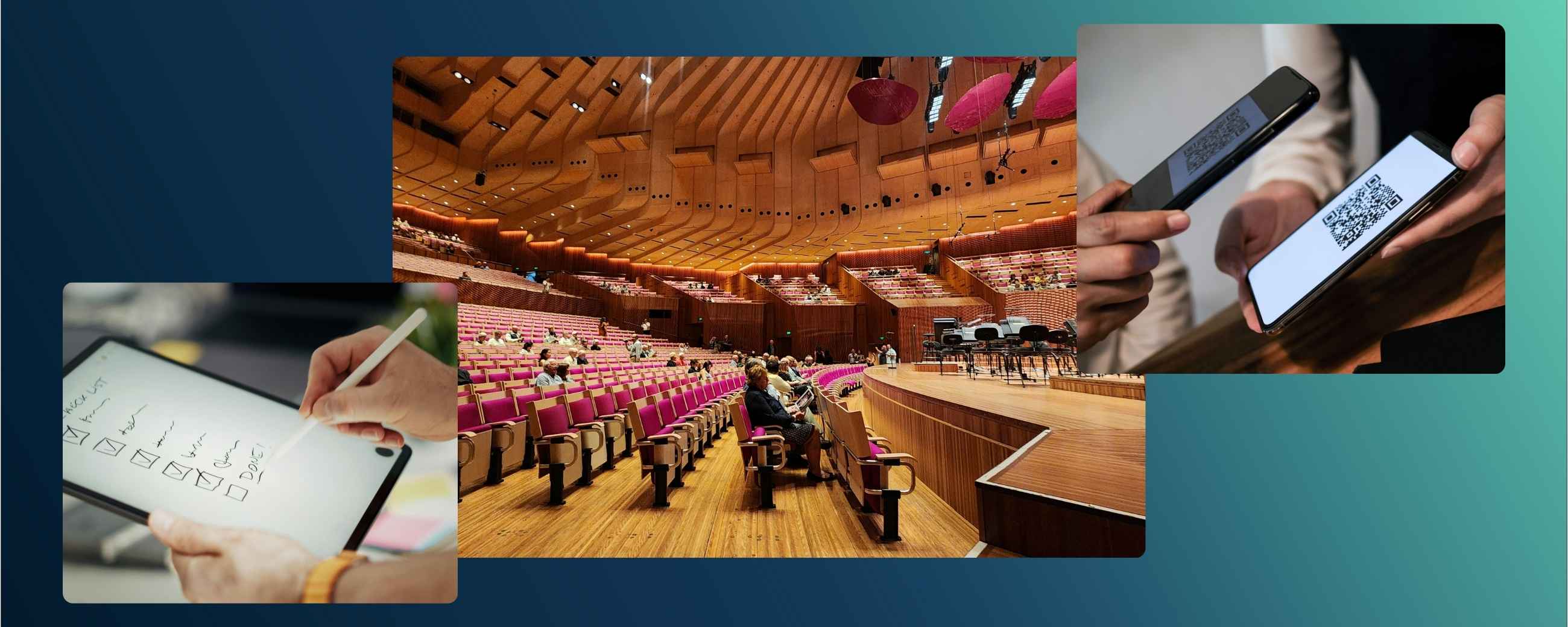Pricing Ticket Strategies: How to Set the Right Price & Sell More
In event planning, ticket pricing stands as a crucial element that can make or break the success of an event. Finding the sweet spot can be undoubtedly challenging: the price needs to be high enough to generate a profit but low enough to keep the event accessible.
The rest of this article will delve into the winning strategies of setting the right ticket price, maximizing your revenue, and creating an unforgettable experience for your attendees
Understanding Your Audience and Costs
The first step in the pricing process is to calculate your estimated costs. Include venue rental, marketing, entertainment, food and beverage, logistical costs, and any other expenses. Remember to leave room for unexpected fees.
Next, take some time to understand your audience. Consider demographics, purchasing power, and past attendance patterns. This foundational understanding will guide your pricing decisions. Whether you’re targeting college students on a budget or well-established business owners, your foundational understanding of the audience will guide your pricing decisions.
Pro tip: We recommend using Contact Insights to gather valuable data about your market.
Factors Influencing Ticket Pricing
Your ticket pricing strategy is shaped by numerous factors. Market demand, competition, price elasticity, and perceived value all intersect to influence the process of price setting.
Gauge the market demand for your event by examining ticket prices for similar types of events. Become a student of the successes and failures of your competition, and fine-tune the unique value proposition of your event.
Take your audience's economic condition and your event's demand elasticity into account. If you see a steep drop in ticket demand when you raise prices, that means your event has high demand elasticity. On the other hand, if your event sells out every year, regardless of price, you have relatively inelastic demand. The relative demand elasticity offers valuable insight into your audience and your pricing capabilities.
Finally, factor in the perceived value of your event. Exclusive experiences, top-tier entertainment, or special access perks can cultivate a sense of premium quality and allow you to charge higher prices. Stay attuned to external elements, such as travel restrictions or seasonal trends, which can cause fluctuations in the perceived value of your event.
Ticket Pricing Strategies
Let's explore some proven ticket pricing strategies to optimize your revenue and cater to diverse segments of your target audience.
Tiered Pricing involves offering different ticket levels, each with unique perks and access levels. Beyond the revenue optimization benefits, this strategy allows you to cater to distinct segments within your target audience. From general admission to VIP experiences, tiered pricing ensures that attendees can choose a level of engagement that resonates with their preferences, interests, and budget.
Early Bird Discounts incentivize early commitment by offering a sweet deal to the attendees willing to purchase tickets before a certain date. Early bird sales generate pre-event excitement and give event organizers a pulse on attendance numbers early on.
Last-minute Deals capitalize on the inherent urgency that comes only in the days or minutes before your event. Don’t miss out on revenue by closing the doors too early. The last-minute deal strategy boosts final sales and caters to the spontaneous crowd.
Bundle Packages seamlessly integrate tickets with merchandise or add-on experiences. From exclusive merch to backstage access, bundle packages allow different segments of your audience to customize their own event experience.
Determining the Right Price
Establishing optimal ticket prices requires a systematic and strategic approach. Take the following factors in mind as you work through the process.
Research Your Audience - Learning about your audience to understand their preferences, demographics, and purchasing behavior, is a foundational step in pricing well.
Analyze Cost and Revenue - Delve into the details of all event-related expenses and earnings to identify your ideal profit margin.
Conduct a Price Sensitivity Test - Assessing the impact of price changes on ticket sales (demand sensitivity) will help you dial in your pricing structure and strategy. Leverage surveys, focus groups, or pilot programs to gauge the audience's responsiveness to different price points.
Monitor the Market Demand - Keep a pulse on the industry landscape by staying attuned to industry trends, competitor actions, and economic conditions. Real-time market insights enable you to pivot pricing when needed.
Utilize Data From Past Events - Analyze attendee behavior, identify trends, and extract valuable insights that inform your pricing decisions. Were certain ticket tiers more popular? Did discounts drive early ticket sales? Use these learnings to refine your pricing strategy and align it with the expectations and preferences of your audience.
Experiment - Experimentation is a key component of successful pricing strategies. Allow for iteration based on real-world data and feedback. Don't shy away from trying new approaches, such as limited-time promotions or loyalty programs. Each experiment provides an opportunity to refine your understanding of what resonates with your audience.
Evaluate and Adapt - Stay curious and maintain a mindset of continuous evaluation and adaptation. Regularly revisit your pricing strategy, incorporating the latest market insights and attendee feedback. What works today may need adjusting tomorrow. Embrace the iterative nature of pricing, and be willing to adapt based on the real-world performance of your strategies.
The Psychology Behind Pricing
Understanding the psychological aspects of pricing is key to influencing purchasing decisions. Of course, any psychological tactics must be backed up with a genuine value offering. Consider the following psychological principles that affect purchasing decisions.
Anchoring is the cognitive bias where people rely heavily on the first piece of information they encounter. Strategically present the higher-priced ticket option first if you want to use this bias to influence someone’s perceptions of the subsequent choices later.
Scarcity emphasizes limited availability and taps into the fear of missing out. Create urgency and boost demand by advertising a limited quantity of tickets or a limited purchasing window.
Social proof leverages testimonials, endorsements, or the popularity of certain ticket types to help validate a purchase decision. Essentially, build trust with your attendees by saying, “Don't take our word for it; hear what our customers have to say.”
Framing presents information in a way that influences perception. For example, if your festival has a higher price tag but shorter lines than the local competitors, you can use framing by highlighting how your event saves people time and hassles.
Ultimately, when you apply these psychological principles, and the perceived value corresponds with the actual experience, you’ll not only influence consumer behavior but also foster trust and satisfaction among attendees.
Utilizing Pricing Tools and Software
While ticket pricing can be challenging, technology has the power to simplify and expedite the process. When selecting a pricing tool for your event, consider your event's size and specific needs—whether that’s a user-friendly interface, cost-effectiveness, scalability, or all of the above.
With its robust analytics and game-changing features, TicketSpice stands out as a comprehensive solution. The intuitive interface allows you to effortlessly implement tiered pricing structures, early bird discounts, and demand pricing. The data analytics tools provide real-time insights into sales trends, enabling you to make data-driven decisions and identify areas for improvement. The flexibility of TicketSpice allows for easy adjustments, ensuring adaptability to changing market conditions and demand. By leveraging the capabilities of TicketSpice, you can streamline operations and optimize revenue in your pricing process.
FAQs
What is a ticket price? A ticket price is the cost attendees pay to gain entry to an event.
What is a ticket charge? A ticket charge refers to any additional fees outside of the ticket’s face value. This might include processing fees, service fees, booking fees or transaction fees.
What is the average ticket price? A typical ticket price will depend on your industry, venue, and event type. Researching averages within your industry can help you gauge the overall revenue potential of your event.
Why do tickets have booking fees? Some platforms charge a booking fee to cover the operational costs associated with ticketing platforms. Watch out, these booking fees can pack a punch on your attendees!
How can I avoid ticket fees? If you want to avoid drowning in ticket fees, avoid the platforms that are notorious for steep, hidden, or ever-increasing fees. With TicketSpice, the prices are obvious and transparent. It’s 99¢ a ticket, plus 2.9% + 30¢ credit card fees.
Final Takeaways
Pricing your event in 2024 will take strategy, effort, and intentional implementation. Apply the insights provided, tailor your strategy to your audience and event specifics, and leverage pricing tools like TicketSpice.
By implementing these strategies, you not only optimize revenue but also ensure a memorable and satisfying experience for your attendees. Here at TicketSpice, we invite you to take charge of your pricing strategy and set the stage for a successful and lucrative event. Click here to get started today. Seize the opportunity and make 2024 your year of unparalleled event success!
Still have more questions? Don’t hesitate to reach out to our support team.
Here to help you have the best event ever!
— The TicketSpice team























